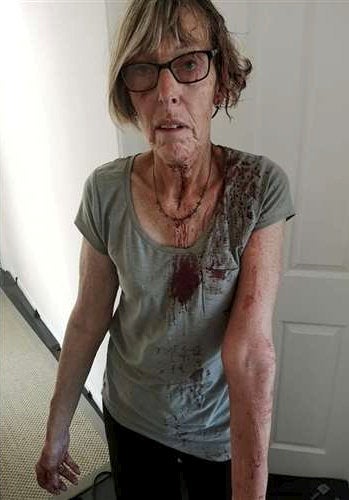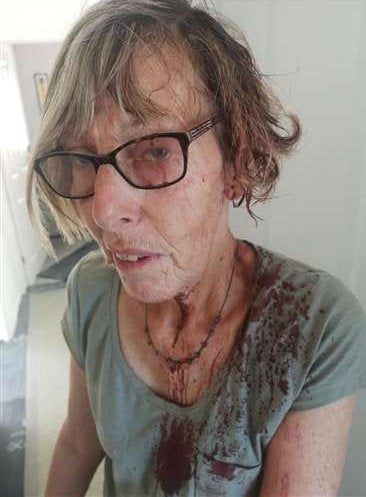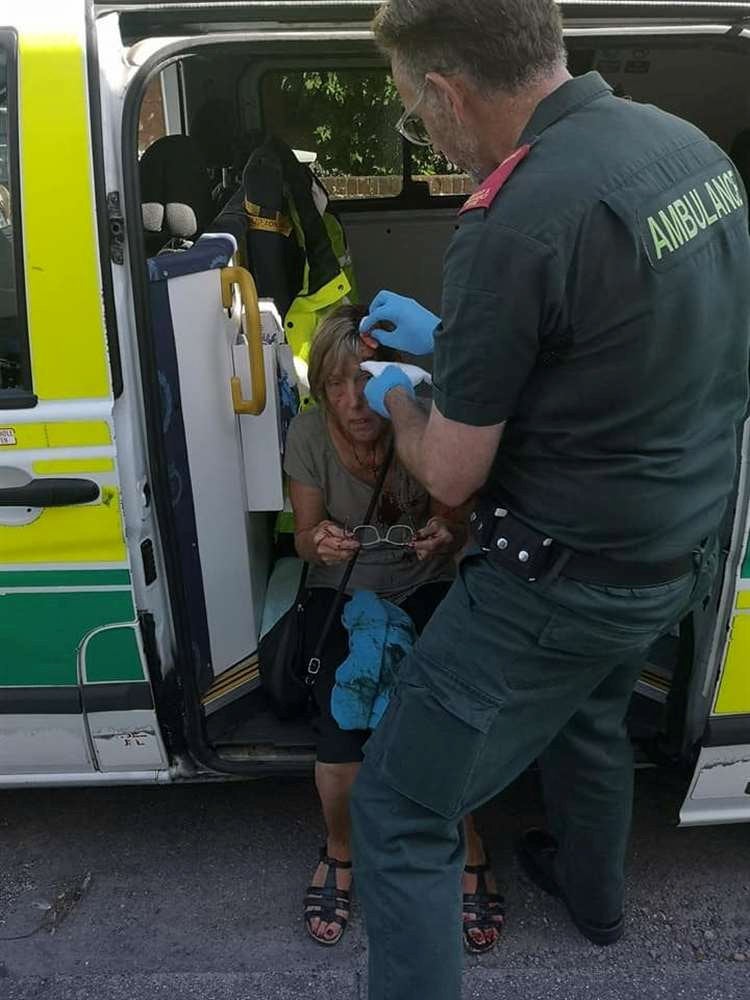Vicious seagull attack leaves grandmother looking like ‘something from Freddy Krueger film’
Warning graphic images: The shocked 66-year-old said she’s happy she ‘lived to tell the tale’

Your support helps us to tell the story
From reproductive rights to climate change to Big Tech, The Independent is on the ground when the story is developing. Whether it's investigating the financials of Elon Musk's pro-Trump PAC or producing our latest documentary, 'The A Word', which shines a light on the American women fighting for reproductive rights, we know how important it is to parse out the facts from the messaging.
At such a critical moment in US history, we need reporters on the ground. Your donation allows us to keep sending journalists to speak to both sides of the story.
The Independent is trusted by Americans across the entire political spectrum. And unlike many other quality news outlets, we choose not to lock Americans out of our reporting and analysis with paywalls. We believe quality journalism should be available to everyone, paid for by those who can afford it.
Your support makes all the difference.A grandmother was left with blood gushing from her head after being attacked by a seagull on her walk home.
The 66-year-old was “minding her own business” as she walked home in Broadstairs, Kent when a seagull clawed her head from behind.
Brenda Thumble said she looked like “something from a Freddy Krueger film” as blood poured from her head down her clothes and her feet.
She had to get a tetanus shot following the shocking attack after a doctor warned her she could be at risk of a bacterial infection from the bird’s claws.
“It came at me from behind so there was no way of expecting anything, it just went ‘whack’ on my head,” the mum-of-three said.
“I put my hand on my head and blood was coming out profusely. I thought ‘oh my gosh’ that’s a lot.
“It had instantly drawn blood, it went at me with its claws rather than beak. There was lots of blood from the claws that had gone straight across my head.”
The seagull had inflicted lots of “little holes” in Ms Thrumble’s head.

The grandmother took cover behind an overhanging hedge before being escorted to safety by a neighbour wearing a motorbike helmet.
She said: “I was frightened to move, and afraid of it coming at me again. I was close to a wall when it swooped.
“A nice man called Aaron on a motorbike came to help me and walked with me to his house.
“He was wearing a helmet and we got there without the seagull attacking. Luckily everyone was really nice, the neighbours all helped me.”

Ms Thrumble said she will now be “very cautious” around seagulls following the vicious attack.
“I presume the seagull was protecting its young, but I couldn’t see any anywhere, I couldn’t see any nests or any babies.
“I know residents around there have been plagued by them. I’d be nervous of what it could do to a dog or to little children.
“Anyone who was a bit frail could have been really seriously injured or knocked over, the force with which it hit me was quite powerful.”

The 66-year-old said she had taken a shortcut down a side road on the way home instead the busier high street, but said, “I won’t be doing that again. I’m happy to have lived to tell the tale”.
According to the RSPCA, gulls that swoop are usually trying to protect chicks that have fallen out of or left the nest.
The animal charity said: “They’ll stop when the person or animal has moved away from their young.
“This behaviour usually only lasts for a few weeks until the chicks have fledged and are able to protect themselves.”





Join our commenting forum
Join thought-provoking conversations, follow other Independent readers and see their replies
Comments